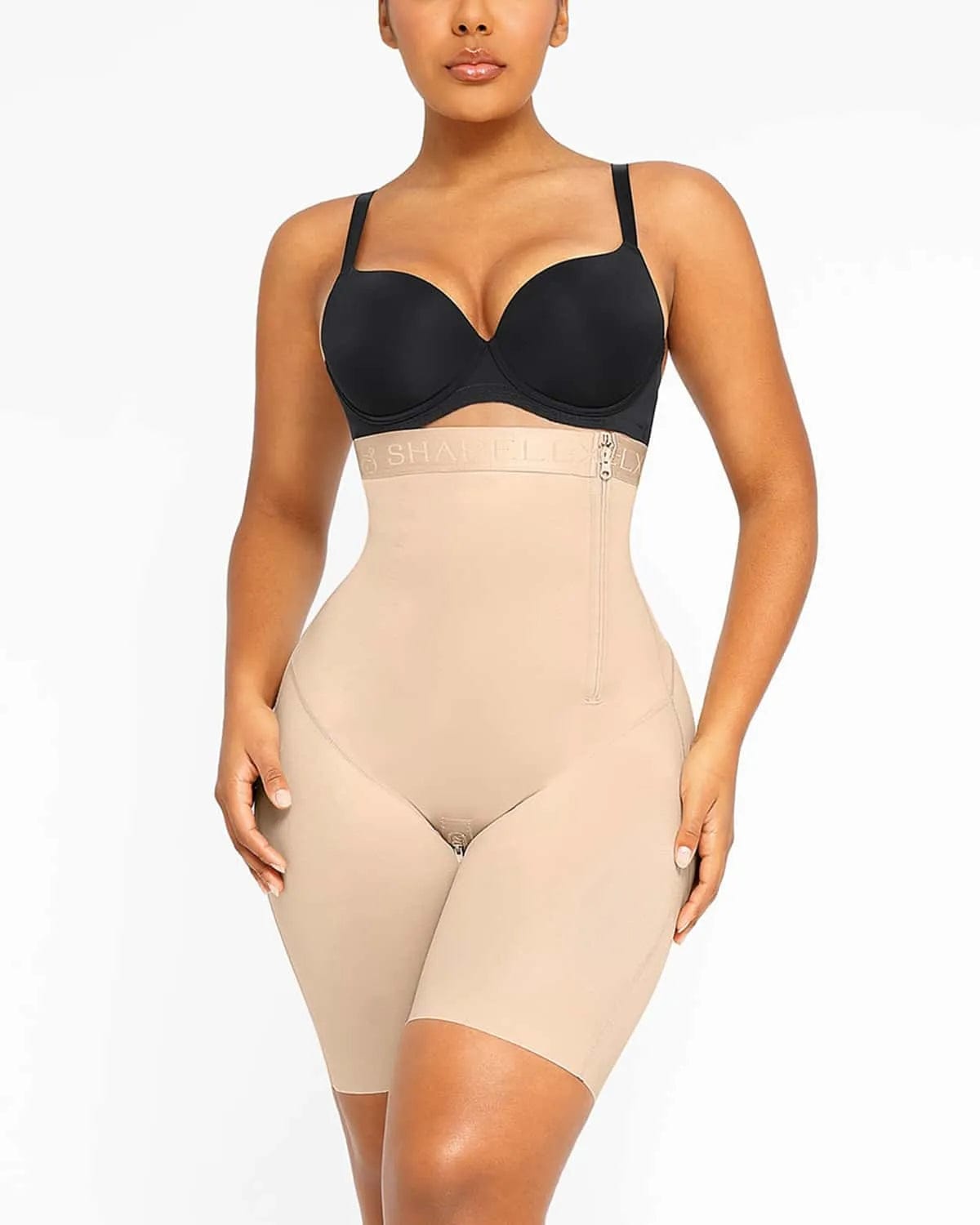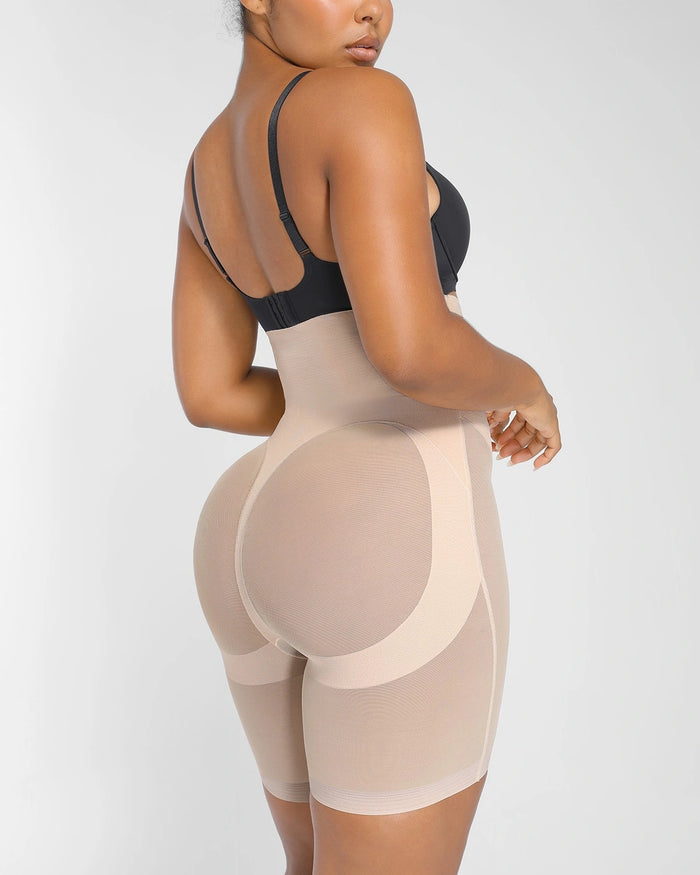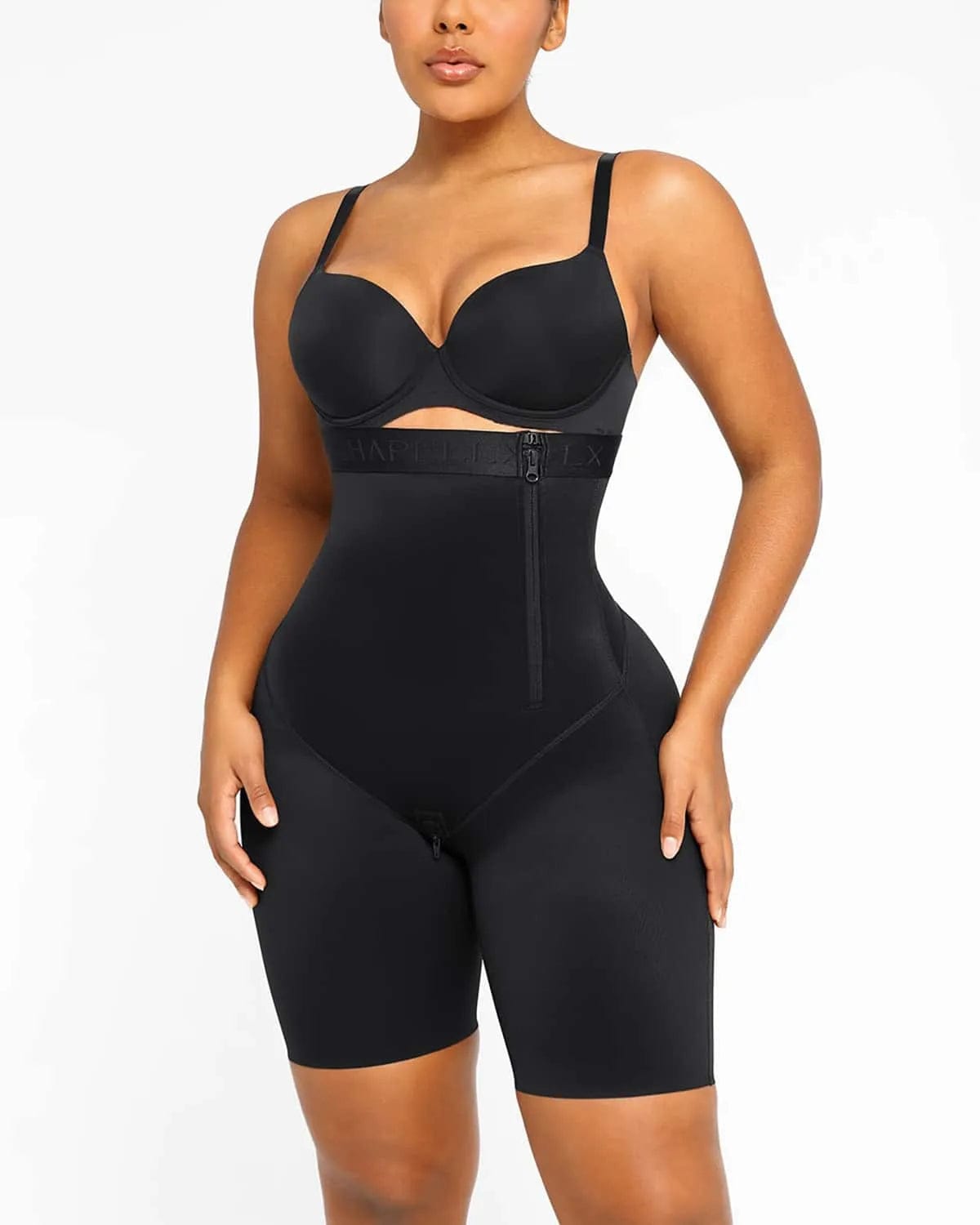Stop the Roll-Down Mystery of Your Shapewear
Ever slipped into your favorite shapewear only to find it rolling down at the most inconvenient moments? It’s a frustrating experience that many face, yet few talk about publicly. Understanding why this happens can save you from constant discomfort and repeated adjustments. In this post, we’ll uncover the common reasons your shapewear might roll down and offer practical solutions to keep everything in place. Whether you’re new to shapewear or a seasoned wearer, this guide will help you make informed choices and enjoy a smoother silhouette without the hassle.
What is Shapewear and Why Do We Love It?
Shapewear is designed to smooth out your figure, accentuating curves and offering support where needed. These garments come in various forms, from high-waist briefs to full-body suits, and are loved for their ability to enhance your natural shape. The right shapewear can boost confidence, making clothes fit better and feel more comfortable. However, when shapewear starts to roll down, it can turn this wardrobe helper into a nightmare.
Common Types of Shapewear
Understanding the different types of shapewear can help you choose the right one for your needs. High-waisted butt-lifting shapewear, for instance, is great for tummy control but can be prone to rolling down if not fitted correctly. Bodysuits offer full-body support but require precise sizing to stay in place. Each type has its quirks, so knowing what to expect can prevent future issues.
High-Waisted Briefs
These are designed to target the tummy area, often extending up to the ribcage. They provide excellent support but can roll down if they don’t fit snugly against your skin.
Bodysuits
Tummy control bodysuits cover the torso and sometimes the thighs, offering comprehensive support. While they are less likely to roll down, they require a precise fit to avoid any discomfort.
Shaping Shorts
These target the thighs and lower abdomen, ideal for wearing under dresses or skirts. Rolling down is less common but can still occur if they’re not the right size.
The Role of Material in Shapewear Performance
The material of your shapewear plays a significant role in its performance. Materials like nylon and spandex are popular due to their stretchability and durability. However, the lack of breathability in some materials can cause sweating, leading to slippage. Understanding the pros and cons of different materials can help you make a better choice.
Nylon and Spandex
These materials offer excellent elasticity and durability but can cause sweating, which may lead to rolling down.
Cotton Blends
Cotton blends are more breathable but may not provide as much support as synthetic materials.
Silicone Lining
Some shapewear comes with silicone linings to help grip the skin and prevent rolling. These can be highly effective but may irritate some people.
Why Does Shapewear Roll Down?
Several factors contribute to shapewear rolling down, and identifying the root cause can help you find a solution. Incorrect sizing and improper fit are the most common culprits. Even the best shapewear will fail if it’s not the right size for your body. Additionally, worn-out elastic and incorrect layering techniques can also cause issues.
Incorrect Sizing
Wearing shapewear that is too small or too large will almost certainly lead to rolling. Always check the size chart provided by the manufacturer and consider your measurements before purchasing.
Worn-Out Elastic
Over time, the elastic in your shapewear can lose its stretch, making it less effective at staying in place. Regularly check the condition of your shapewear and replace it when necessary.
Improper Layering
Layering shapewear incorrectly can also cause it to move. Ensure that your shapewear is the bottom layer, with other clothing layered on top to keep it secure.
Choosing the Right Size
The correct size is crucial for effective shapewear. Measure your waist, hips, and bust to find the best fit. Refer to the size chart and, if in doubt, opt for a slightly larger size. Too tight, and it will roll down; too loose, and it won’t provide the desired support.
Measure Accurately
Use a measuring tape to get accurate measurements of your waist, hips, and bust. Write these down before shopping.
Check Size Charts
Each brand may have different sizing, so always refer to the size chart provided. If you’re between sizes, go for the larger one to avoid discomfort.
Try Before You Buy
If possible, try the shapewear on before purchasing. This can help you ensure a good fit and avoid the hassle of returns.
The Importance of Fit
Fit goes beyond just size. The fit of your shapewear affects its ability to stay in place and provide the desired support. Ensure that the shapewear fits snugly but comfortably, without any pinching or bulging.
Snug but Comfortable
Your shapewear should hug your body without causing discomfort. If it’s too tight, it will likely roll down.
Adjust Straps and Hooks
Many shapewear pieces come with adjustable straps or hooks. Use these to customize the fit to your body.
Test Movements
Try moving around in your shapewear to see if it stays in place. Sit, stand, and bend to ensure it doesn’t shift.
Material Matters
The material of your shapewear affects both comfort and functionality. Look for breathable, stretchy fabrics that offer support without causing irritation. Avoid materials that make you sweat, as this can lead to slippage.
Breathable Fabrics
Choose shapewear made from breathable materials to avoid sweating and irritation. Cotton blends are a good option for this.
Stretchy but Firm
Look for fabrics that are stretchy yet firm enough to provide support. Spandex and nylon are popular choices.
Anti-Slip Features
Some shapewear comes with anti-slip features like silicone strips. These can help keep the shapewear in place, but make sure they don’t irritate your skin.
How to Layer Shapewear Correctly
Proper layering can make a significant difference in how well your shapewear stays in place. Always wear shapewear as the bottom layer, with other clothing layered on top. Ensure that the shapewear is smooth and wrinkle-free before adding additional layers.
Bottom Layer First
Always wear your shapewear as the bottom layer. This helps keep it in place and provides a smooth foundation for your outfit.
Smooth and Tuck
Make sure your shapewear is smooth and tucked in properly. This will help it stay in place and prevent any rolling.
Add Layers Carefully
When adding layers, do so carefully to avoid disturbing your shapewear. Smooth out any wrinkles and ensure everything is aligned properly.
Practical Tips to Prevent Rolling
There are several practical tips you can follow to prevent your shapewear from rolling down. These include choosing the right style, ensuring the correct fit, and considering additional features like silicone strips.
Choose the Right Style
Certain styles of shapewear are less prone to rolling. For example, bodysuits and high-waisted briefs with silicone strips can be more secure.
Ensure Correct Fit
Make sure your shapewear fits properly. Too tight, and it will roll down; too loose, and it won’t provide the desired support.
Consider Silicone Strips
Some shapewear comes with silicone strips that help keep it in place. These can be very effective but may cause irritation for some people.
When to Replace Your Shapewear
Like any garment, shapewear has a lifespan. Over time, the elastic and fabric can wear out, making it less effective. Knowing when to replace your shapewear can help you maintain the desired level of support and comfort.
Signs of Wear and Tear
Check your shapewear regularly for signs of wear and tear. If the elastic is stretched out or the fabric is thinning, it may be time to replace it.
How Often to Replace
How often you need to replace your shapewear depends on how frequently you wear it. Generally, it’s a good idea to replace it every 6-12 months.
Caring for Your Shapewear
Proper care can extend the life of your shapewear. Follow the care instructions on the label, and avoid using harsh detergents or fabric softeners.
The Role of Body Shape
Your body shape can also affect how well your shapewear stays in place. Different styles of shapewear work better for different body shapes, so it’s important to choose one that complements your natural curves.
Know Your Body Shape
Understanding your body shape can help you choose the right shapewear. For example, high-waisted briefs may work well for hourglass figures, while bodysuits are great for apple shapes.
Choose Complementary Styles
Choose shapewear styles that complement your natural curves. This will help ensure a better fit and prevent rolling.
Customize Your Fit
Use adjustable straps and hooks to customize the fit of your shapewear to your body. This can help keep it in place and provide the desired level of support.
Conclusion
Finding the right shapewear can be a game-changer, offering you the support and confidence to wear your favorite outfits with ease. By understanding the reasons behind rolling shapewear and implementing practical solutions, you can enjoy a smoother, more comfortable experience. Remember to choose the right size, pay attention to material, and follow our tips to keep your shapewear in place. Ready to elevate your wardrobe game? Explore our collection and find your perfect fit today!



